Hollandazed: Thoughts, Ideas, and Miscellany — gameplay
HOW TO PLAY TABLE BATTLES (by Tom Russell)
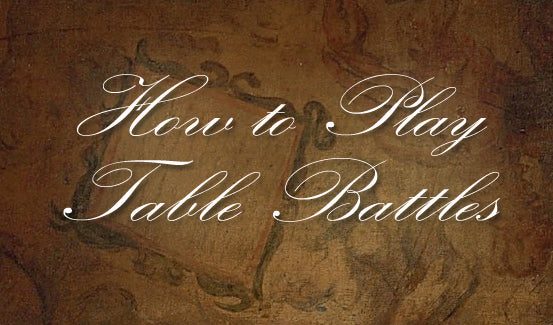
Like many of my designs, Table Battles is a fragile game, one in which the game state is prone to sometimes gentle and sometimes severe distortion. A player who obtains an advantage can see that advantage rapidly increase over time, and even become decisive and irreversible. The trick is to stop the other guy from getting one over on you in the first place, and to put him in a position where you can get one over on him. So both players should have this goal in mind, and should be working toward maintaining deadlock until it's to their advantage...
NEXT TURN, I'LL ATTACK (by Tom Russell)
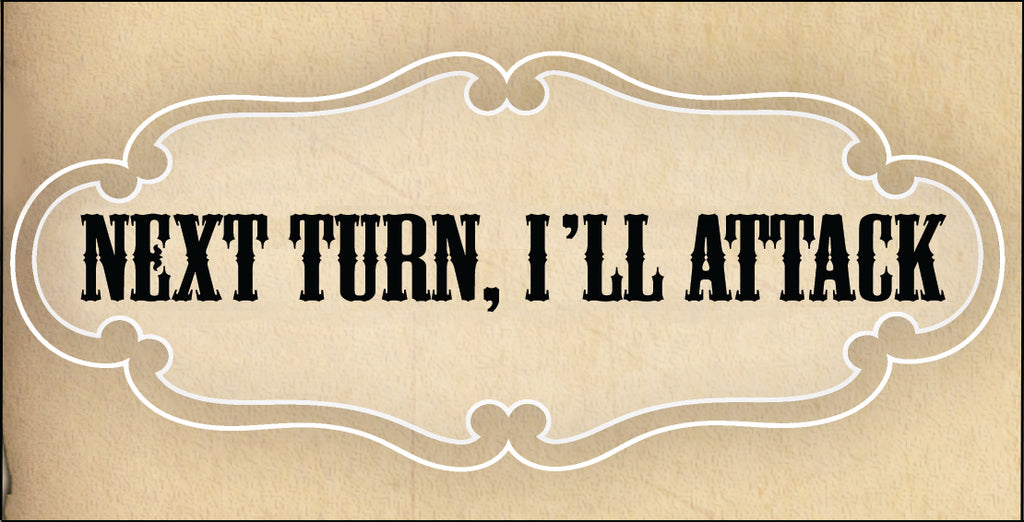
A common complaint about a certain type of wargame is that attacks can be much more frequent (and sometimes much more decisive) than they were historically. Especially in games where factor-counting figures into it, there's a tendency to pile as many counters up near the front-line as possible, and to attack every turn with everything you've got provided the attack isn't a stupid or pointless one. As a result of this, many wargames are "bloodier" than the real thing - if the removal or flipping of a small square of cardboard can truly by said to be "bloody" - with...
TABLE BATTLES PLAY EXAMPLE (by Tom Russell)
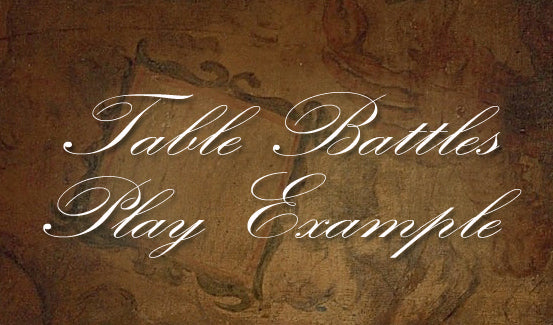
In this play example, we'll be looking at the first few turns of the Marston Moor scenario. THE SITUATION Each player has seven formation cards, with five formations being active at the start of the battle. For both sides, these five formations include two cavalry, two infantry, and an artillery card. The active infantry are roughly similar on both sides: they're limited to placing one die per turn, and when they attack, they do one hit per die while taking a hit themselves for launching the attack. One of the two infantry cards on each side can place only sixes,...
ZUGZWANG! (by Tom Russell)
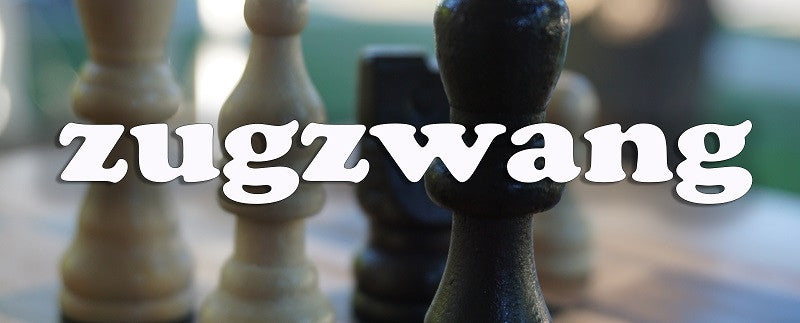
Oh no, not another short blog article about elements of classic abstract games! What can I say, guys? I'm on a kick. Zugzwang is a concept in chess theory that refers to a serious disadvantage created by your compulsion to move. That is, because you need to do something on your turn, even when you would really rather not, you may be forced to fatally compromise your position. It's a function, like so many other things, of tempo and leverage. A player who has the tempo dictates the terms of the match; his opponent is stuck reacting to what the...
CHARLEMAGNE SESSION REPORT (by Tom Russell)
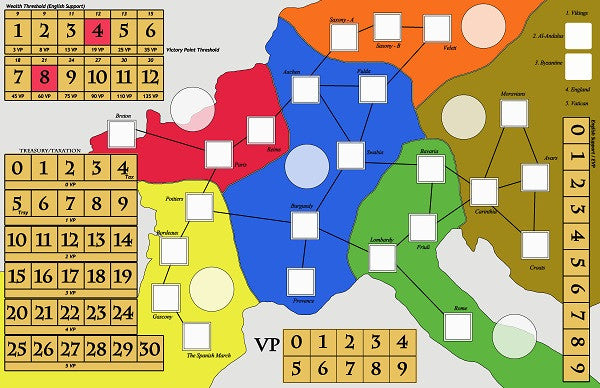
I almost won today. Like Agricola, Master of Britain, Charlemagne, Master of Europe (CMOE for short) requires that players hit a certain VP threshold to progress to the next turn. CMOE is a longer game, and there are more opportunities to score VP, and so as you'd expect the VP thresholds are higher. To win Agricola, you needed 75 VP at the end of the game. By contrast, in CMOE 75 VP is a turn threshold slightly over half-way through the game; the final threshold, at the end of Turn 12, is 135 VP. Which is doable. I know it's...
